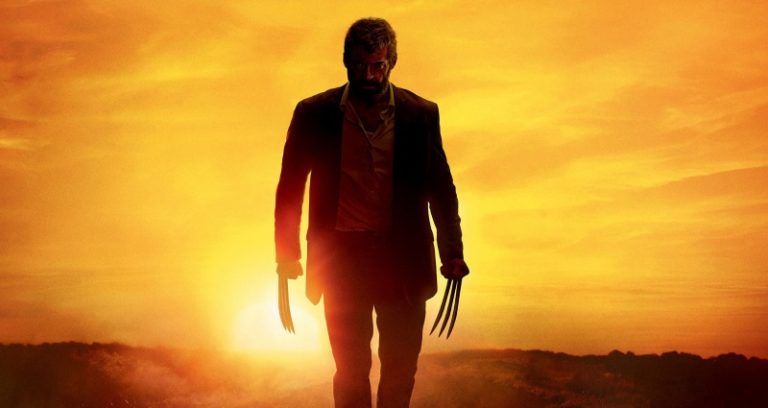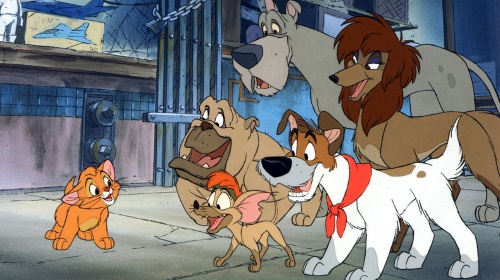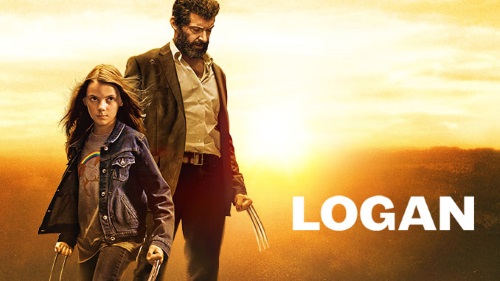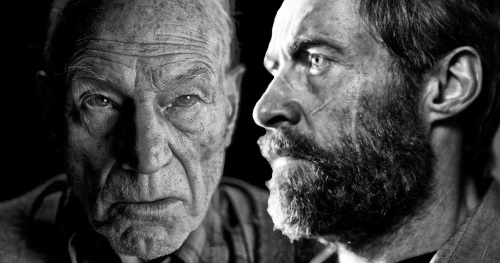Screenwriting Wisdom from LOGAN Writer/Director James Mangold

Jeff Goldsmith sat down with writer and director James Mangold (Copland, 3:10 to Yuma, Walk the Line, Logan) for an amazing ScreenCraft sponsored Q/A session. They discussed Mangold's background, his creative process, and the experience of writing a superhero movie that plays more like a tragic drama than a Marvel comics character movie.
Listen to the podcast here:
In 1985, James Mangold secured a writer and director deal at Disney at the young age of twenty-one, based primarily on the short films he made. "It was an awful experience for me," Mangold shared. "I wasn't ready... everyone is in such a damn rush to make it. But if you don't have the arsenal to kind of defend your ideas, you can get there too early. And I think I did... I didn't have a lot of scripts under my arm."
Mangold had a difficult time because he didn't agree with how Disney was developing movies. Much like today's development atmosphere, they were chasing the trends of what had been successful that year. He wrote a television movie and co-wrote the animated feature Oliver and Company — both of which Mangold believes were places he was put so they could have him work off his deal.

He suddenly found himself twenty-two and left with nowhere to go, career-wise — despite the early success that he had.
He utilized what success he did have to get random jobs writing voice-over for movie trailers, writing television Holiday specials, etc.
A few years removed from his Disney deal, Mangold moved to New York and applied to Columbia University's film school, where he graduated with an MFA in film. While there, he had the opportunity to study under the great Milos Forman (One Flew Over the Cuckoo's Nest, Amadeus, Man on the Moon) and developed and wrote two scripts, both of which were produced in the 1990s — Heavy and Cop Land — with him directing both as well.
He went on to enjoy a critically heralded string of films that he both wrote and directed, leading to the genre-bending Logan, his second installment in Fox's Wolverine franchise (he directed The Wolverine as well). The film stood out because it was shot with an R rating, a first for the franchise. While some falsely believe that the rating was changed during production due to the success of Fox's R-rated Deadpool, Manghold confirmed, "Logan was contractually rated R [before production began]."

We share some of Mangold's best quotes from the podcast and elaborate on the wisdom he shared.
"I can't outline. I don't like to outline... I try to write in full screenplay [format] and try to figure out my movie at the same time."
There is no one true answer to how you should develop your concepts into screenplays. Some are meticulous about outlining while others, like Mangold, prefer to jump in and discover the story as they write it.
Mangold further explained, "If I start writing in some abbreviated version, I already hate the scene. It's dead. It's inert. And to me, writing an outline creates stories that feel that they were made in an outline."
When you push aside the notion of outlining and jump into a screenplay, it's much like the process of writing a novel. You go in knowing the general beginning, middle, and end — always understanding that anything and everything can be changed — and then discover the characters, their motivations, and how those two elements allow the story to evolve as you write.
"No one can guide you but you."
Throughout film school, Mangold's professors and instructors told him that he couldn't write screenplays without first writing detailed outlines. Mangold stuck to his own process, writing two features during his time in film school that would later go on to be produced and released. One of those — Cop Land (click the title to read the feature length script) — was a critically-acclaimed hit. And to this day, Mangold still doesn't outline when he is writing.
"Don't make a movie that tells me 2 + 2 = 4... tell us a story that surprises us."
Mangold often quotes this lesson that Milos Forman taught him in film school.
Instead of writing a predictable story, tell the audience that 2 + 2 = 5. The audience will quickly say, "Um, no it doesn't." Your movie is the theorem that proves it does. This is as opposed to telling an audience what they already know and what they already want to hear.
It's about always trying to find a new angle.
Anyone can write different versions of the same stories we've been reading and watching for decades. It's when you take what audiences know and strip the comfort of predetermined knowledge away — that is when you've written a screenplay worth taking a look at.
"I [write] until I stop. "
Mangold was asked how long he writes per writing session. "I go until I stop."
He elaborated by saying, "When you are stuck writing, it's because you don't know what you're writing. You should go see a movie. Go for a walk. Hold hands with someone. Go to the park. Go on a bike. And when you think of something to write, find your way back and write it."

Too many screenwriters believe that you must write every single day for X number of hours. But what good is it if you are forcing yourself to write when you really don't know what you're writing? It will lead to pages and pages of material that you will never — or shouldn't — use.
Pre-visualization is key to productive writing. And in order to visualize, your mind often needs to wander. This is what Mangold was referring to when he said that you should go do another activity. And when you partner that with watching movies, your mind will be given inspirational seeds that apply themselves to whatever you are currently working on.

Those seeds will grow and then when you sit down to write, you'll actually have something to write about. The next thing you know you'll have twenty pages.
"The greatest failure to happen is not typing... whatever gets you writing, write. "
Mangold was speaking about finding the energy to write. When you're not writing, you're failing as a writer. The key is to find whatever it is that makes you write, and use it. In order to do this, you have to be aware of what it is that gets your creative juices flowing.
"Be sparse and never do anything more. My theory about the text in the script would be that you're sitting in this theater and watching a movie with a blind person. Then you are describing what they see on the screen. And you only have as long as the shot takes to get the description out... tell the story in which speed you could tell it live."
He was answering a question about writing action sequences — specifically for Logan. The quote itself offers some of the best advice that screenwriters will ever find.
Too many scripts rely on detailed scene description — and one of the most common screenwriting questions is, "How much detail do you go into for action sequences?" Less is more.
Mangold went on to say, "Part of the reason you write too much is because you want to make the movie and you can't make the movie. So you start making the movie on paper. You shouldn't. You should be writing the recipe for making the movie."
Scene description is meant to offer the broad strokes of whatever action is taking place. This leaves the script open for interpretation. Film is a collaborative medium, so unless you are an auteur and writing the script for you to direct and there is no one else to answer to, be sparse.
He closed his answer by saying, "The primary experience you want [the audience] to have is momentum. The way you're going to create momentum is less bullshit. Less stuff between the stuff. All of that description is not momentum. It is a kind of frozen picture."
Anything that slows down the read is poison to a screenwriter. When momentum is stopped, the reader has to reset to read on. And when that happens, the moment that you — the writer — were trying to convey might have come and gone in the eyes of the reader.
Keep scene description short, sweet, and to the point using only the broad strokes necessary to keep the story moving forward.
"If you're making a character movie, write a character movie. And one of the aspects of a character movie is that it's about relationships."
Mangold was specifically referencing his approach to Logan. Despite being set within the X-Men universe and despite starring two of that universe's central superhero figures — Wolverine/Logan and Professor X — the actual film is a character piece. And when you are writing a character piece, the key element of that is the relationship between those characters.

Sure, in Logan there is violence, action, and superpowers. But those are all secondary when it comes to how Mangold handles those two characters and the relationship between them — as well as the relationship between Wolverine/Logan and Laura.
"There is no bad guy. There is an antagonist and a protagonist. The antagonist think's he's doing good shit, not bad shit. So there really is no bad guy."
In Logan, there is no clear bad guy, like what we normally see in movies based on comic books. Mangold stated that this was by design. He went on to talk about his feelings towards the term villain. He doesn't believe in it and thinks that other films suffer from such characters.
In his eyes, there is no bad guy. The best "villains" are antagonists that, by definition, go against the protagonist's path. And they do so while fully believing that their perspective is righteous — that they are doing what they believe is right.
The weaker cinematic villains are those that do evil things for the sake of doing evil things.
If you listen to this amazing podcast, you'll learn a lot more about the development and production of Logan. And even beyond that, you'll learn some excellent screenwriting wisdom from one of the best screenwriters working today — James Mangold.
Ken Miyamoto has worked in the film industry for nearly two decades, most notably as a studio liaison for Sony Studios and then as a script reader and story analyst for Sony Pictures.
He has many studio meetings under his belt as a produced screenwriter, meeting with the likes of Sony, Dreamworks, Universal, Disney, Warner Brothers, as well as many production and management companies. He has had a previous development deal with Lionsgate, as well as multiple writing assignments, including the produced miniseries Blackout, starring Anne Heche, Sean Patrick Flanery, Billy Zane, James Brolin, Haylie Duff, Brian Bloom, Eric La Salle, and Bruce Boxleitner. Follow Ken on Twitter @KenMovies
For all the latest ScreenCraft news and updates, follow us on Twitter and Facebook!
Tags
Get Our Screenwriting Newsletter!
Get weekly writing inspiration delivered to your inbox - including industry news, popular articles, and more!




























